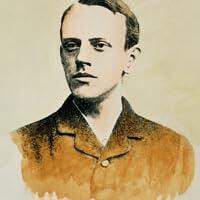
J.J. Thomson
关于作者
J.J. Thomson was a prominent British physicist best known for his discovery of the electron, which fundamentally changed the field of atomic physics. His groundbreaking work laid the foundation for modern physics, revealing the existence of a particle smaller than the atom itself. Thomson's experiments with cathode rays in the late 19th century led to the identification of the electron, which earned him the Nobel Prize in Physics in 1906. Throughout his career, he also contributed significantly to the understanding of electrical conduction in gases and was instrumental in the development of the field of electrical engineering.
In addition to his research, Thomson was a dedicated educator and served as a professor at the University of Cambridge for many years. His influence extended beyond his own research, as he mentored a generation of physicists, including notable figures such as Ernest Rutherford. Thomson's legacy is evident not only in the scientific advancements he made but also in the profound impact he had on future scientists. His work continues to resonate in the realms of physics and engineering, shaping our understanding of the atomic world.